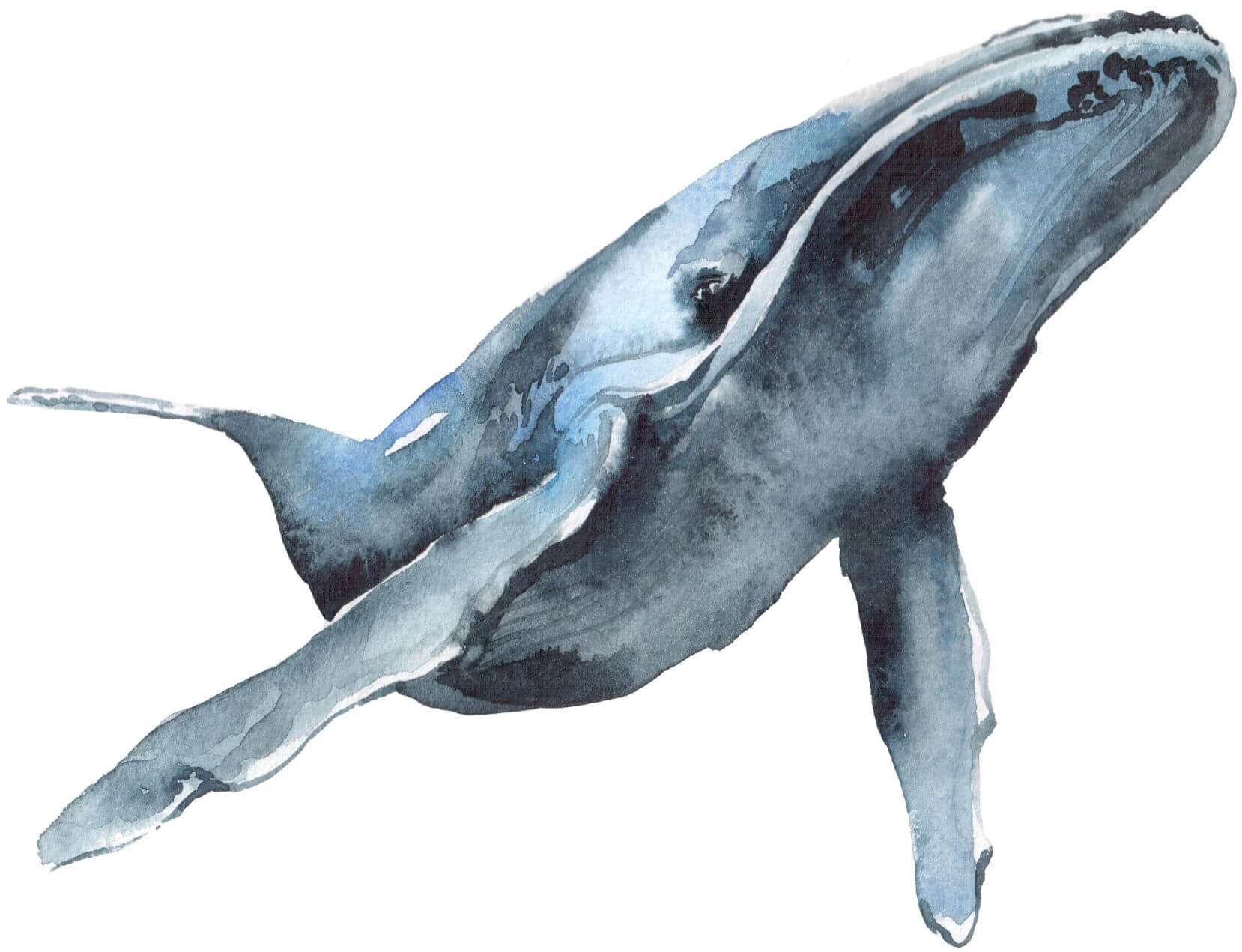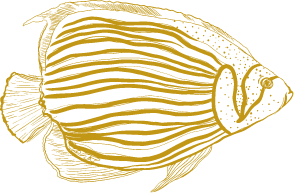Looking for the Best Maui Snorkel Tour?
Everything
is connected
The 3 most basic things you should know:
1) What does coral bleaching look like from years ago and now?

2) Why do I need to only use reef safe sunscreen?
Oxybenzone, octinoxate, 4-methylbenzylidene camphor and butylparaben are all terribly harmful to coral reefs. The majority of sunscreens contain oxybenzone (also referred to as Benzophenone-3 or BP-3), which is incredibly toxic and is known to be one of the biggest factors of coral bleaching.
3) Where can I find trusted brands of reef safe sunscreen?
Ma’alaea
Ma’alaea General Store
Kihei
Hawaiian Moons
Maui Dive Shop
Kahului
Whole Foods
Alive and Well
Down to Earth
Paia
Mana Foods
Pride of Maui
Coral Reef
Initiative
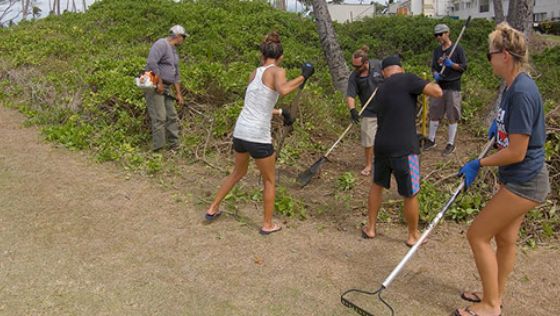
Pride of Maui is donating resources, including welders, fiberglass workers, small boats, marketing resources, fuel, and crew to help support the ocean conservation community.
The goal is to create a healthy reef by utilizing bio-diversity—providing food for small fish that, in turn, feed bigger fish. Farming seaweed on the reef, gathering it, and bringing it into a controlled environment in metal cages anchored to the seafloor to prevent turtles from eating it.
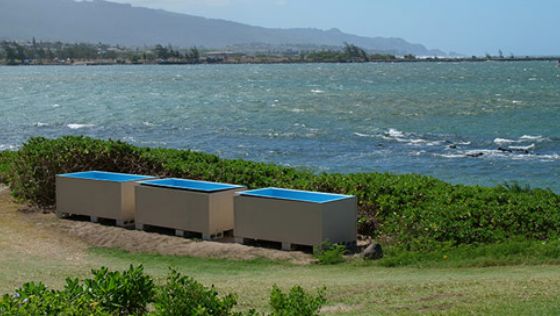
Transferring it from cages to 500-gallon tanks, then putting it back in various locations on the seafloor when the growth cycle is complete. Introducing seaweed to the reef is vital to the baby fish.
This initiative will be accomplished in a great location at Kahului Harbor near Maui Beach Hotel and sharing with locals and visitors a vision of restoring the reef, which starts with the seaweed.
What can
I do to help
protect
reefs?
Daily
Live sustainably! What does that mean? Well, it means reducing your carbon footprint in an effort to reverse the effects of global warming. Extra heat from warmer temperatures puts stress on the coral, which leads to bleaching. Bleaching is the loss of color from tissue, causing it to expose its skeleton.
- Recycle to limit the amount of pollutants in our landfills
- Compost your biodegradable waste in your garden
- Plant a rain garden to absorb polluted runoff
- Avoid pesticides which can runoff and end up in our ocean
- Conserve water—careful water usage means that less runoff will end up in the ocean
- Buy sustainable seafood
- Become an advocate for reef conservation
- Be a pono (responsible) fisher, taking only what you need as you follow the guidelines set by State of Hawaii Division of Aquatic Resources
- Avoid buying items that are made from coral or other marine life
When in the Water
- Do not touch the coral, this means no standing or resting on them—even the lightest touch can harm them and certain coral can sting
- Relax and take your time as you swim, it is important to move slowly so as not to accidentally disturb the coral
- Be aware of your fins so you do not accidentally stir up sediment
- Avoid wearing gloves and kneepads when in a coral environment
- Remain horizontal when in the water if you are near or above a reef
- Maintain a reasonable distance from the coral
- Refrain from urinating while you are in the water, as anecdotal evidence suggests that human waste, specifically urine, increases algae growth which suffocates coral and impedes its growth
- Do not take anything out of the water, with the exception of any trash you may find that is not home to living organisms
- Avoid buying items that are made from coral or other marine life
Before Your Adventure / Be a Responsible Visitor
- Spend your vacation at hotel that has environmentally friendly practices, including energy conservation and recycling
- Choose a reef-friendly marine tour that, among other things, uses available moorings, gives environmental briefings, and uses available wastewater pump-out facilities
- Educate yourself about coral reefs—learn all you can about these lovely and fragile environments before your excursion
- Purchase reef safe sunscreen—when you are in the water sunscreen can wash off potentially harming marine life
- Consider using a snorkel vest for additional buoyancy, especially if you are an inexperienced snorkeler
- Practice snorkeling skills away from the reef
- Be sure that your equipment fits and well secured before entering the water
- Make a donation when visiting coral parks or other marine conservation areas
When Traveling
Did you know that eighty percent of the United States’ coral reefs call Hawaii home? As such it is important to research coral-friendly businesses, from hotels to marine tour companies, to know what they are doing to help the environment. If you are planning on participating in a marine tour, don’t hesitate to ask what the company does to support ecotourism. Ecotourism is intended to create a positive experience that assists in building environmental and cultural awareness.
Additionally, there are measures you can take to ensure that after your ocean adventure the only thing you leave behind is bubbles. Be responsible when you are participating in a marine tour—be sure that you are following local rules and regulations.
Coral
Reef blog
10 Things You Can Do to Help Save Hawaii’s Coral Reefs
Healthy coral reefs are exceedingly important. Reefs support bustling diverse ecosystems that provide shelter to a fourth of all identified marine species and act as natural barriers, which protect the coastline from the ocean’s pounding waves.
Additionally, coral reefs are known as medicine chests of the sea, with a number of its marine creatures producing compounds that have been used for human application, including treatments for cardiovascular diseases and leukemia! Coral reefs support numerous industries from food to medicine to tourism, and it is up to us to assist in their conservation and protection.
Pride of Maui Coral Reef Initiative
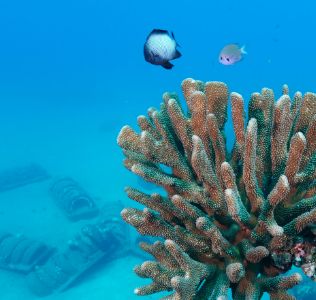
Pride of Maui’s
Coral Reef
Initiative
Pride of Maui makes donations to pay for welders and fiberglass workers, marketing, boats, fuel and crew for ocean conservation efforts.
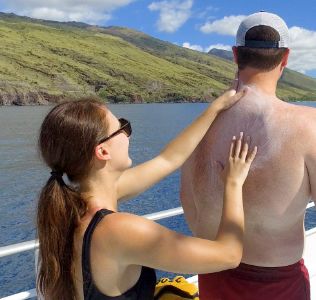
Reef Safe
Sunscreen
Protect coral reefs by reducing chemical damage, preserving their beauty and ecosystems for generations to come.
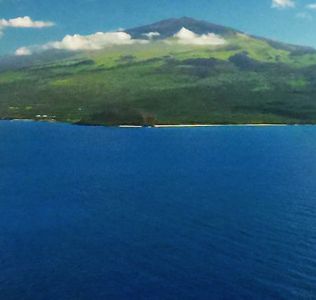
Mauka & Makai
Connection
From mauka to makai (mountain to the sea), Maui’s watersheds and coral reefs are intertwined in a delicate ecological balance.
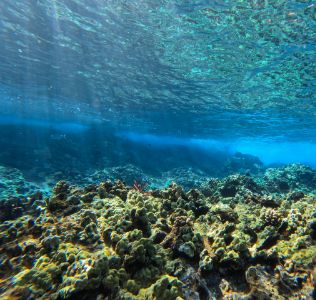
Coral Reefs are the
Medicine Chests of the Sea
Coral reefs, the sea’s medicine chests, provide vital compounds for human health, from heart treatments to leukemia cures. We must continue to protect and preserve them.
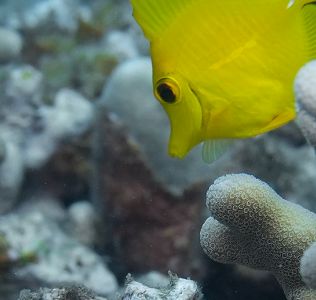
Watch the Rescuing
our Reefs Trailer
Learn more about the fight to save Hawaii’s coral reefs.
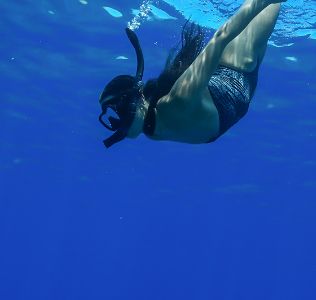
What can I do to help protect coral reefs?
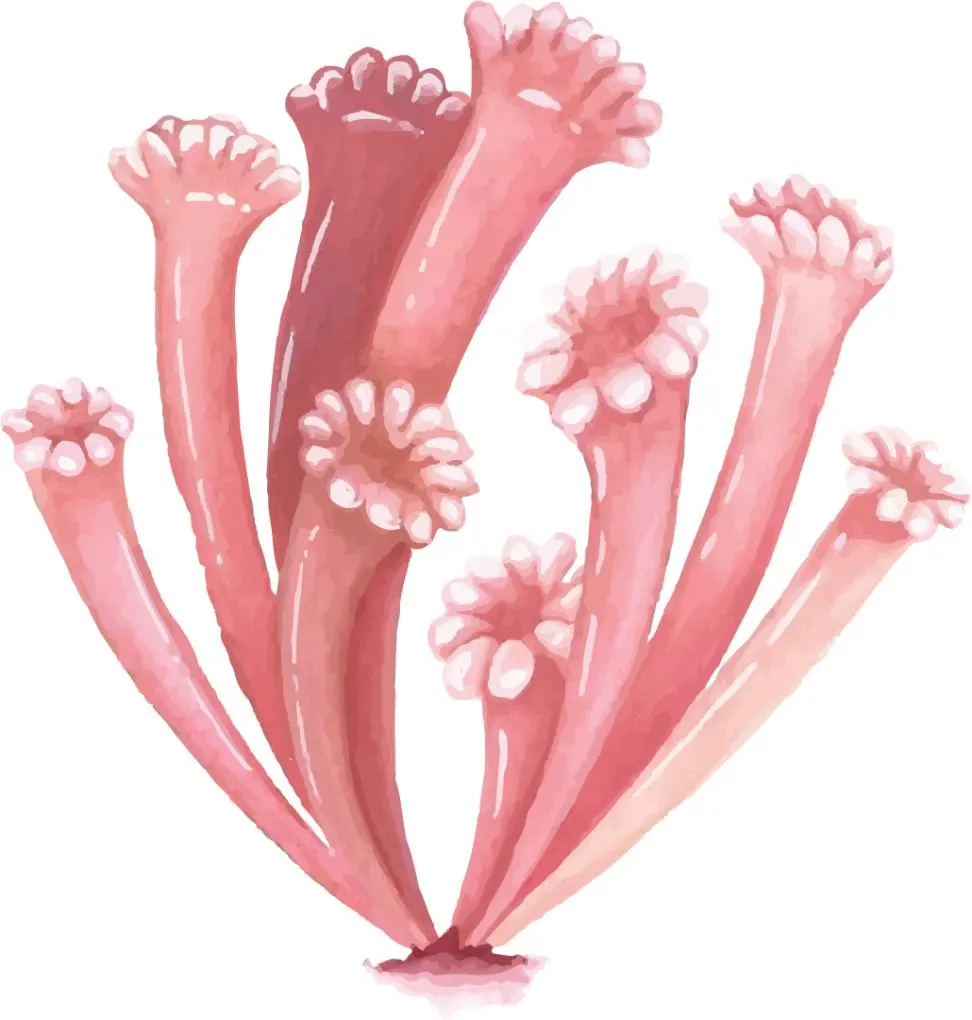
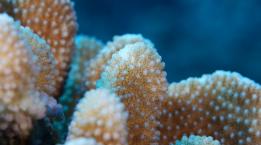
Everyday
Change your lifestyle habits and make choices that help to protect coral reefs.
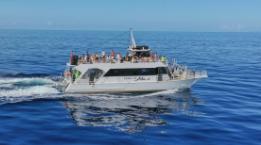
When Traveling
Choose eco-friendly businesses that care about their carbon footprint and the environment.
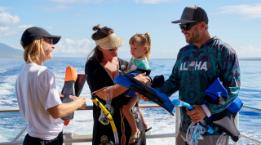
Be a Responsible Visitor
Learn about the community, the oceans, and how to protect Maui's coral reefs when visiting.
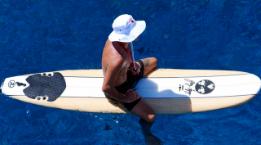
When in the Ocean
Learn proper protocol to ensure you aren't damaging the coral reefs while spending time in the water.
Frequently Asked Questions about Maui’s Coral Reefs
Maui’s coral reefs are underwater ecosystems of diverse coral species and marine life. They are found along the coastlines of the island of Maui and play a crucial role in maintaining the island’s biodiversity and shoreline protection.
These reefs are vital for several reasons. They provide a habitat for countless marine species, contribute to Maui’s economy through tourism and fishing, protect the shoreline from erosion and storm surges, and are significant for cultural and recreational purposes.
Maui’s coral reefs face various threats, including rising sea temperatures, ocean acidification, pollution from land runoff, overfishing, and physical damage from anchors and tourism-related activities. These threats can lead to coral bleaching, disease, and reduced coral health.
Everyone can contribute to Maui coral reef protection by practicing responsible snorkeling and diving, using reef-safe sunscreen, reducing plastic waste, supporting sustainable fishing practices, and participating in beach clean-up initiatives. A great first step is to learn and help educate others about the importance of coral reefs.
Coral bleaching occurs when corals expel the symbiotic algae in their tissues due to stress, causing the corals to turn white. Coral bleaching weakens the corals and can lead to their death if the pressure continues. Elevated sea temperatures are the primary cause of coral bleaching in Maui’s reefs.
Maui has several marine protected areas (MPAs), such as the Hawaiian Islands Humpback Whale National Marine Sanctuary and the Ahihi-Kina’u Natural Area Reserve. These areas have regulations in place to conserve marine life and coral reefs.
Tourists can enjoy Maui’s coral reefs responsibly by following these guidelines: use reef-safe sunscreen, avoid touching or standing on corals, refrain from collecting souvenirs from the reef, practice good snorkeling and diving etiquette, and support tour operators committed to eco-friendly practices. Your actions can help preserve these precious ecosystems for future generations to enjoy!

Why Pride of Maui
We have 40+ years of experience
With years of experience, we excel in crafting unforgettable Maui boat tours, ensuring unforgettable memories for every guest.
Learn More